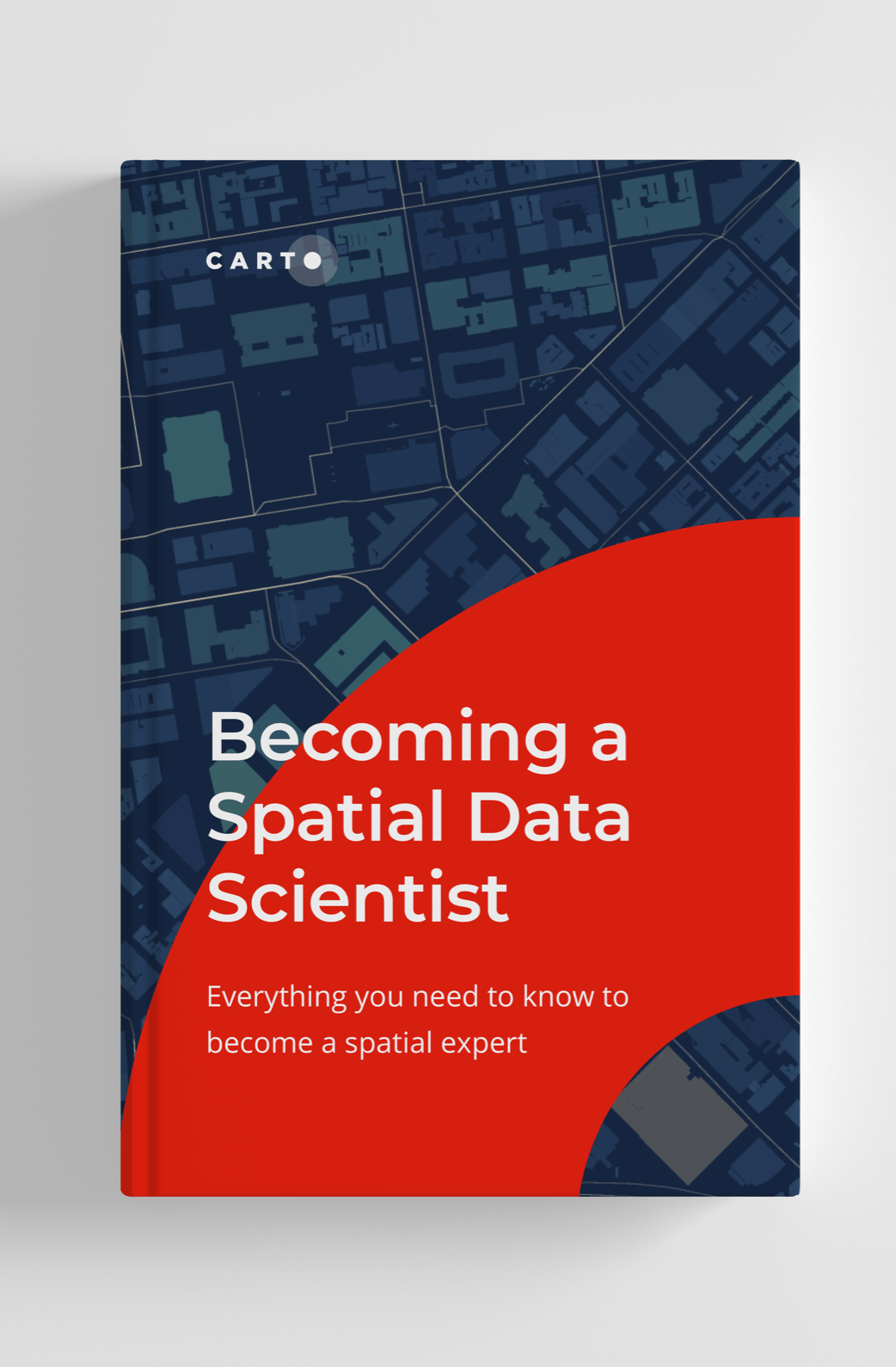Example notebooks to accompany Becoming a Spatial Data Scientist.
The notebooks in this repository use a ready-to-run Docker image containing Jupyter applications and interactive computing tools. To run the notebooks, please follow the instructions below.
- Clone this repository
$ git clone git@github.com:CartoDB/data-science-book.git
$ cd data-science-book-
Download and install docker. Follow instructions here: https://docs.docker.com/install/
-
Run the image. Open your terminal and run
$ docker run --user root -p 8888:8888 -e JUPYTER_ENABLE_LAB=yes -e GRANT_SUDO=yes -v "$PWD":/home/jovyan/workspace cartodb/data-science-bookA local address will be created. Copy and paste the address in your browser, this will launch Jupyter Lab. Note: If you have another Jupyter server running, make sure it's on a different port than 8888. Otherwise change the port number above or close down the other notebook server.
- Start experimenting with the code in each of the Chapter directories
-
Visualizing spatial data with CARTOframes(static preview) - a notebook for easily visualizing your data on a map using CARTOframes. -
Computing measures of spatial dependence(static preview) - a notebook for exploring spatial dependence in your data and visualize the results using CARTOframes. -
Discrete spatial models(static preview) - a notebook with examples of spatial models for discrete processes and visualize the results using CARTOframes. -
Continous spatial models(static preview) - a notebook with examples of spatial models for continuous processes and visualize the results using CARTOframes.
Agglomerative Clustering(static preview) - a notebook demonstrating how to create spatially constrained clusters using agglomerative clusteringDBSCAN(static preview) - a notebook demonstrating how to create clusters of points in geographic coordinatesSKATER(static preview) - a notebook demonstrating how to create spatially constrained clusters that are homogeneous
Travelling Salesman Problem(static preview) - a notebook demonstrating how to solve travelling salesman problem.
